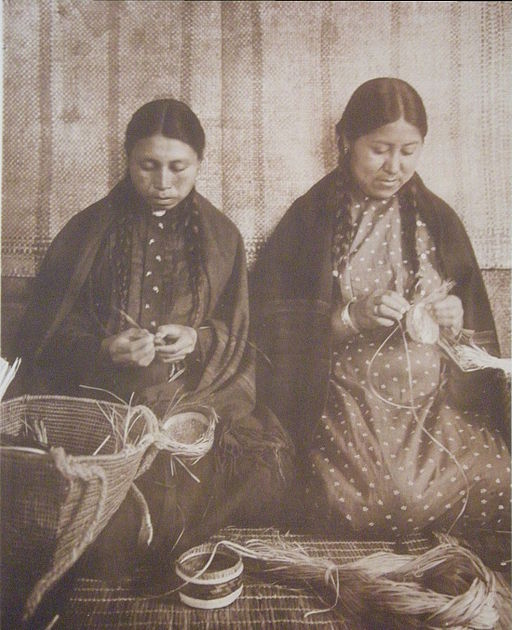Yay, winter solstice it here! That means we can all work more as days get longer! huh? “That must be a lot of work”. “How long does that take?” These are questions we commonly encounter here at Paleotechnics. They aren't always irrelevant questions, but they generally hint at something pervasive, and often destructive, in our society. The answer is never simple. The truth is that we usually don’t know, and we usually don’t pay much attention. The society we live in, and the way we do work, are all about quantifying. If we work longer, we get paid more. We walk around constantly judging activity and categorizing it. There is work, and then there is life, and activity is either leisure, or profit motivated. Working for acquisition of the symbol called money is particularly conducive to fracturing our lives into parts and assigning different types and amounts of value to them.*
But there are other ways to think about the things we do. My friend and artist/craftsman/doer/maker Scott McGrath had a bumper sticker made once that said "I'D RATHER BE WORKING". Almost anyone who has tackled a big project requiring intense concentration, whether it’s a hobby or for money work, knows the feeling of losing perception of time for a while. I experience that feeling quite a bit. Whether I’m cracking walnuts, tying sage bundles, or paring artichokes to make canned artichoke hearts, I look up after a while and realize I was in a mode in which time didn’t matter. As long as you don’t need that time for something else, why keep track at all? And who cares how long it takes? But we are conditioned to constantly judge activities and value some over others. We have come to have a strange relationship with what we call “work” and are also constantly encouraged to relish and enjoy our leisure. But, if you live passionately and work to get things which are important in your larger scheme done, those lines begin to blur.
There are plenty of jobs I don’t totally relish, but I find that if the things I do are generally in line with my overarching passions, interests and goals, and I’m feeling relatively healthy, then labor is a pleasure. And that labor of some kind, big or small, is what I want to be doing with most of my time, and what makes me feel good. Meaningful work is one of the cornerstones of a satisfying existence.
The social and media forces that influence us are very powerful. I don’t want to minimize them, and I don’t want to ignore the fact that we do what we do largely because of who we are and how and where we find ourselves. But in a very real way, no one forces you to take a job you don’t like, or live life in a certain way. You don’t have to live the way other people do, hold their values, or possess the things they possess. You don’t have to spend your leisure time like other people do. You don’t have to “relax”, or "party", or do “nothing” when you are not working. And you don’t have to divide your life strictly into work and leisure activities. “Work” is life, just like everything else. Some of it is enjoyable and some of it isn’t. But we don’t always necessarily have to judge it and categorize it ahead of our actual experience of it.
We can’t buck the whole system, but we can come to recognize the areas in which modern life, with it’s work/consume cycle and the fracturing of our lives into compartmentalized parts of work v.s. leisure, can cause disharmony. With awareness comes the ability to act on our own behalf. We can take ourselves gently by the shoulder and point us in new directions that reintegrate the parts of our life, where activity may just be activity and enjoyment and satisfaction are where we find them.
Disconnecting yourself from messages that indoctrinate you into the work/consume cycle and reinforce the fracturing of your life is helpful. We are all susceptible to advertising and popular culture, no matter how aware we are. It’s just simple programing. Almost no one can escape it completely, but we can minimize it.
Try observing how you judge and categorize your activities unnecessarily, and how it affects enjoyment of them, or especially your ability to get lost in activities in a relaxed way. What is your internal dialogue saying about the different things you do? What judgements is it making that are coming out of someplace besides a pure, unpolluted motivation that you can understand emotionally? If you really truly hate something you do and can't find a way to integrate it harmoniously into your life, maybe it's time to look at changing your life around.
Losing awareness of time, frenzy and resistance to simply become your activity for a while, whether it is oriented toward money or not, is a nice place to be! Then maybe when you show someone your impressive project and they ask “how long did it take?” you will feel the irrelevance of the mindset that constantly feels the need to quantify everything in order to find a value for it that is, upon close examination, basically arbitrary. An integrated life of love and passion, where activity of all kinds stem from a harmonized motivation, is going to be more relevant and satisfying than the constant, neurotic crazing of life and the world into value based on an arbitrary and constantly shifting quantification. This isn’t a discreet model or place we can reach, but a philosophy of approach that we can reinforce and grow toward with awareness and intention. By stepping aside for a minute and viewing ourselves and others from an outside perspective, we can cultivate an awareness of the ways in which we have come to embody those potentially de-harmonizing aspects of consumer society, and point ourselves in new directions.
http://www.youtube.com/watch?feature=player_embedded&v=21j_OCNLuYg
*Not to dogmatically reject money. It has it's advantages and, regardless of anything, it's probably not going to go away anytime soon, so we'd best learn to live with it for now.





